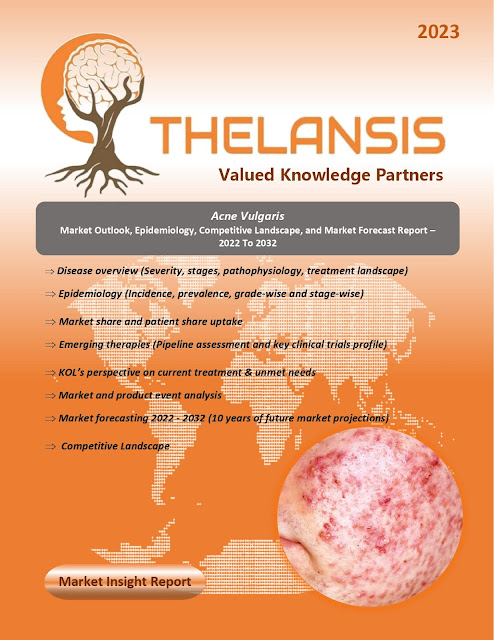Unresectable or Metastatic Squamous Non-Small Cell Lung Cancer (sqNSCLC) – Market Outlook, Epidemiology, Competitive Landscape, and Market Forecast Report – 2023 To 2033
Unresectable or Metastatic Squamous Non-Small Cell Lung Cancer (NSCLC) is a type of lung cancer originating from squamous cells in the lining of the bronchi, the large airways in the lungs. It is referred to as "unresectable" when the tumor cannot be completely removed through surgery and "metastatic" when it has spread to other body parts beyond the lungs. Signs and Symptoms include Persistent cough that worsens over time, Chest pain, discomfort, or tightness, Shortness of breath or wheezing, Hoarseness or changes in voice, Recurrent respiratory infections, such as bronchitis or pneumonia, Coughing up blood or rust-colored sputum, Fatigue and weakness, Unexplained weight loss, Loss of appetite. Unresectable or metastatic squamous NSCLC occurs when abnormal squamous cells in the bronchi undergo uncontrolled growth and division, forming a tumor. The exact cause of this type of lung cancer is often associated with long-term exposure to tobacco smoke. However, other factors like exposure to environmental pollutants, genetic mutations, and family history may also contribute. As the cancer progresses, the tumor may invade nearby tissues and structures or spread to distant sites through the bloodstream or lymphatic system. The clinical manifestation of unresectable or metastatic squamous NSCLC can vary depending on the extent of the disease and the organs affected by metastasis. Besides the general symptoms mentioned earlier, specific clinical manifestations may include:
·
Bone pain or fractures if cancer has spread to
the bones
·
Neurological symptoms (headache, seizures,
weakness, or numbness) if cancer has spread to the brain or spinal cord
·
Jaundice, abdominal pain, or digestive
problems if cancer has spread to the liver or gastrointestinal tract
·
Swollen lymph nodes in the neck or other parts
of the body
·
Paraneoplastic syndromes, which are a group of
symptoms caused by substances released by the tumor
The
prognosis for unresectable or metastatic squamous NSCLC is generally poor. The
overall survival rate is lower compared to early-stage lung cancer, primarily
due to the advanced stage of the disease at diagnosis and limited treatment
options. However, the prognosis can vary depending on various factors, such as
the patient's overall health, age, response to treatment, presence of specific
genetic mutations, and extent of metastasis. Treatment approaches for
unresectable or metastatic squamous NSCLC may include chemotherapy, targeted
therapy, immunotherapy, radiation therapy, and palliative care to manage
symptoms and improve quality of life.
Thelansis’s
“Unresectable or Metastatic Squamous Non-Small Cell Lung Cancer (sqNSCLC)
Market Outlook, Epidemiology, Competitive Landscape, and Market Forecast Report
– 2023 To 2033" covers disease overview, epidemiology, drug utilization,
prescription share analysis, competitive landscape, clinical practice,
regulatory landscape, patient share, market uptake, market forecast, and key
market insights under the potential Unresectable or Metastatic Squamous
Non-Small Cell Lung Cancer (sqNSCLC) treatment modalities options for eight
major markets (USA, Germany, France, Italy, Spain, UK, Japan, and China).
KOLs insights of Unresectable or
Metastatic Squamous Non-Small Cell Lung Cancer (sqNSCLC) across 8 MM market
from the centre of Excellence/ Public/ Private hospitals participated in the
study. Insights around current treatment landscape, epidemiology, clinical
characteristics, future treatment paradigm, and Unmet needs.
Unresectable
or Metastatic Squamous Non-Small Cell Lung Cancer (sqNSCLC) Market Forecast Patient
Based Forecast Model (MS. Excel Based Automated Dashboard), which Data Inputs
with sourcing, Market Event, and Product Event, Country specific Forecast
Model, Market uptake and patient share uptake, Attribute Analysis, Analog
Analysis, Disease burden, and pricing scenario, Summary, and Insights.
Thelansis Competitive Intelligence (CI) practice
has been established based on a deep understanding of the pharma/biotech
business environment to provide an optimized support system to all levels of
the decision-making process. It enables business leaders in forward-thinking
and proactive decision-making. Thelansis supports scientific and commercial
teams in seamless CI support by creating an AI/ ML-based technology-driven
platform that manages the data flow from primary and secondary sources.
Tags: Unresectable
or Metastatic Squamous Non-Small Cell Lung Cancer (sqNSCLC), Unresectable or
Metastatic Squamous Non-Small Cell Lung Cancer (sqNSCLC) market outlook, Unresectable or Metastatic Squamous Non-Small
Cell Lung Cancer (sqNSCLC) competitive landscape, Unresectable
or Metastatic Squamous Non-Small Cell Lung Cancer (sqNSCLC) market forecast, Thelansis, Primary market research, KOL
insights, Competitive Intelligence (CI)




Comments
Post a Comment